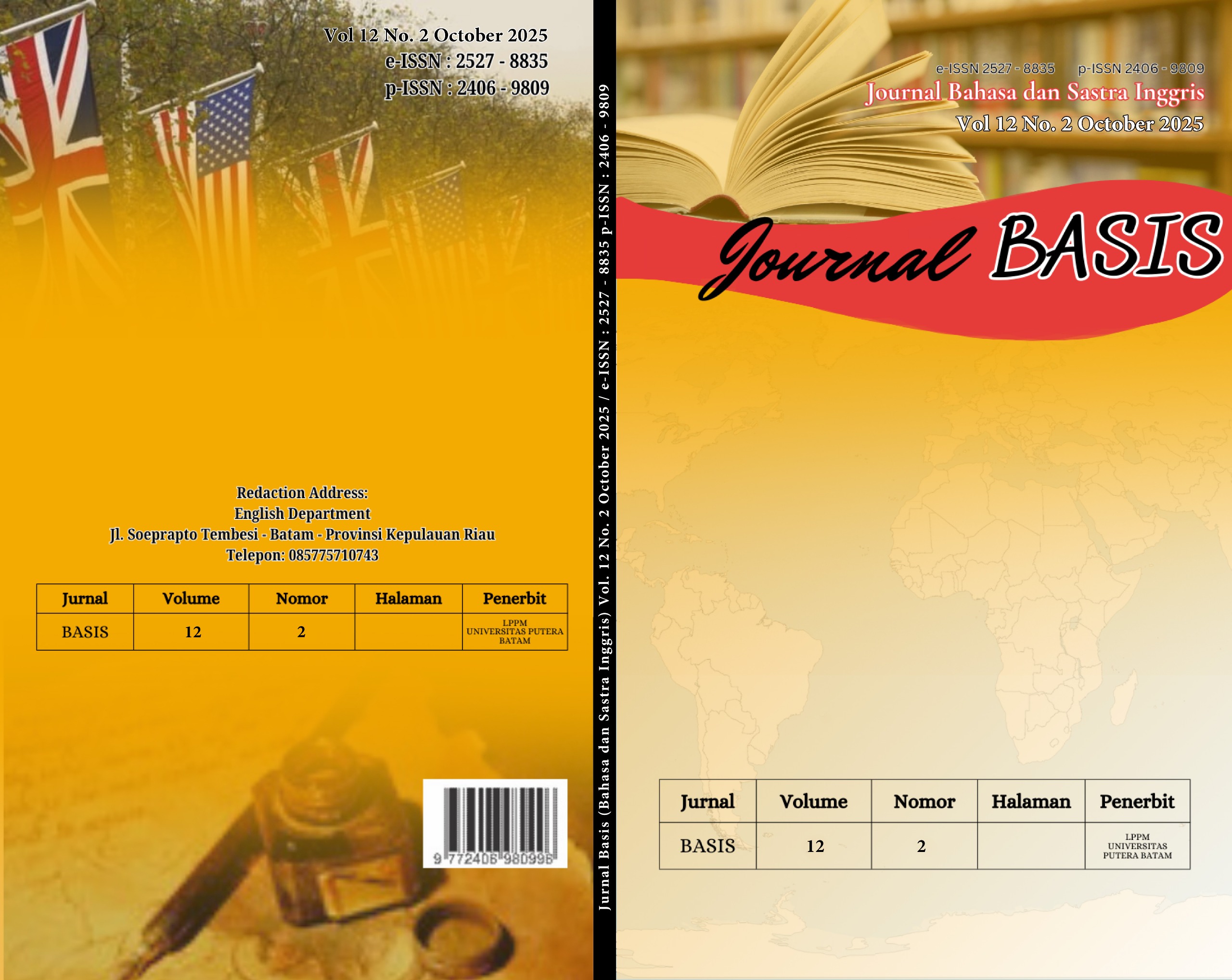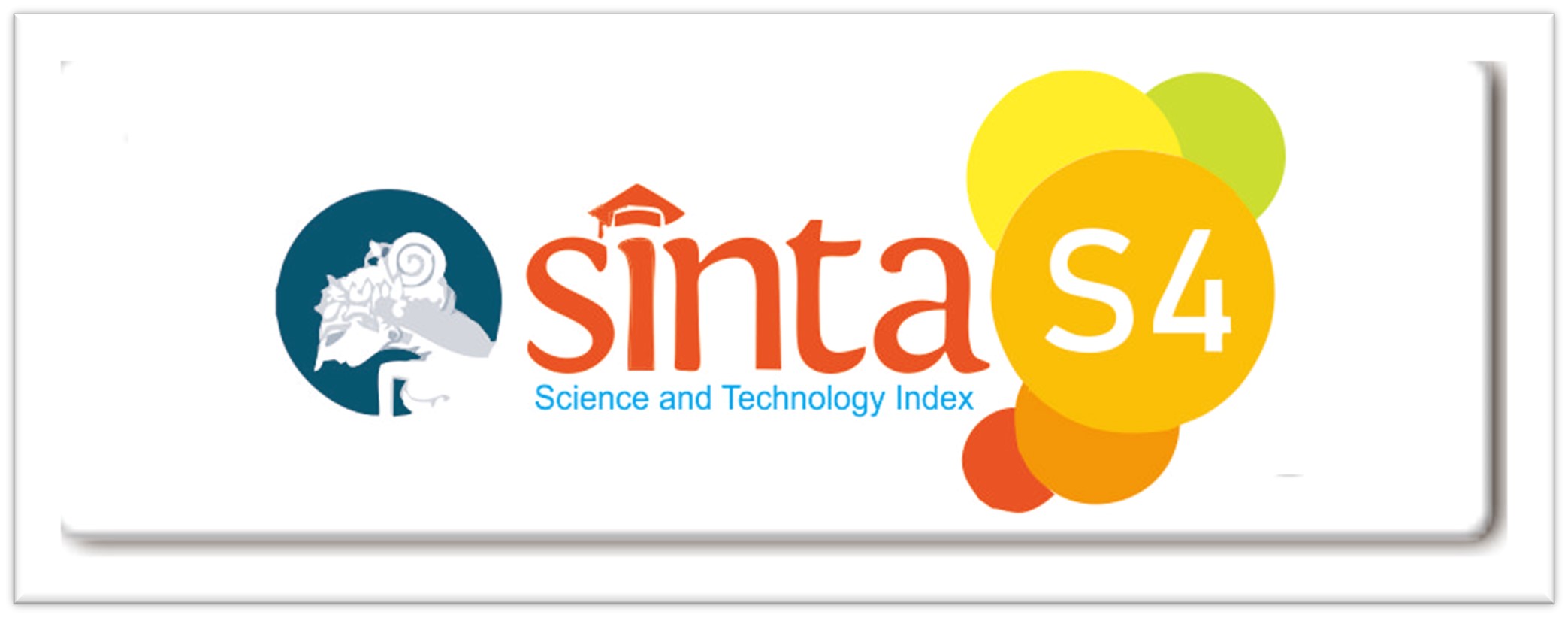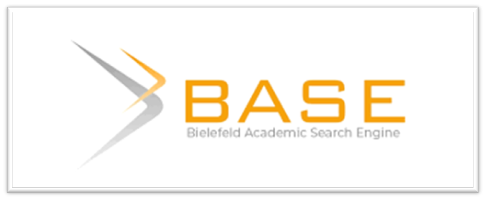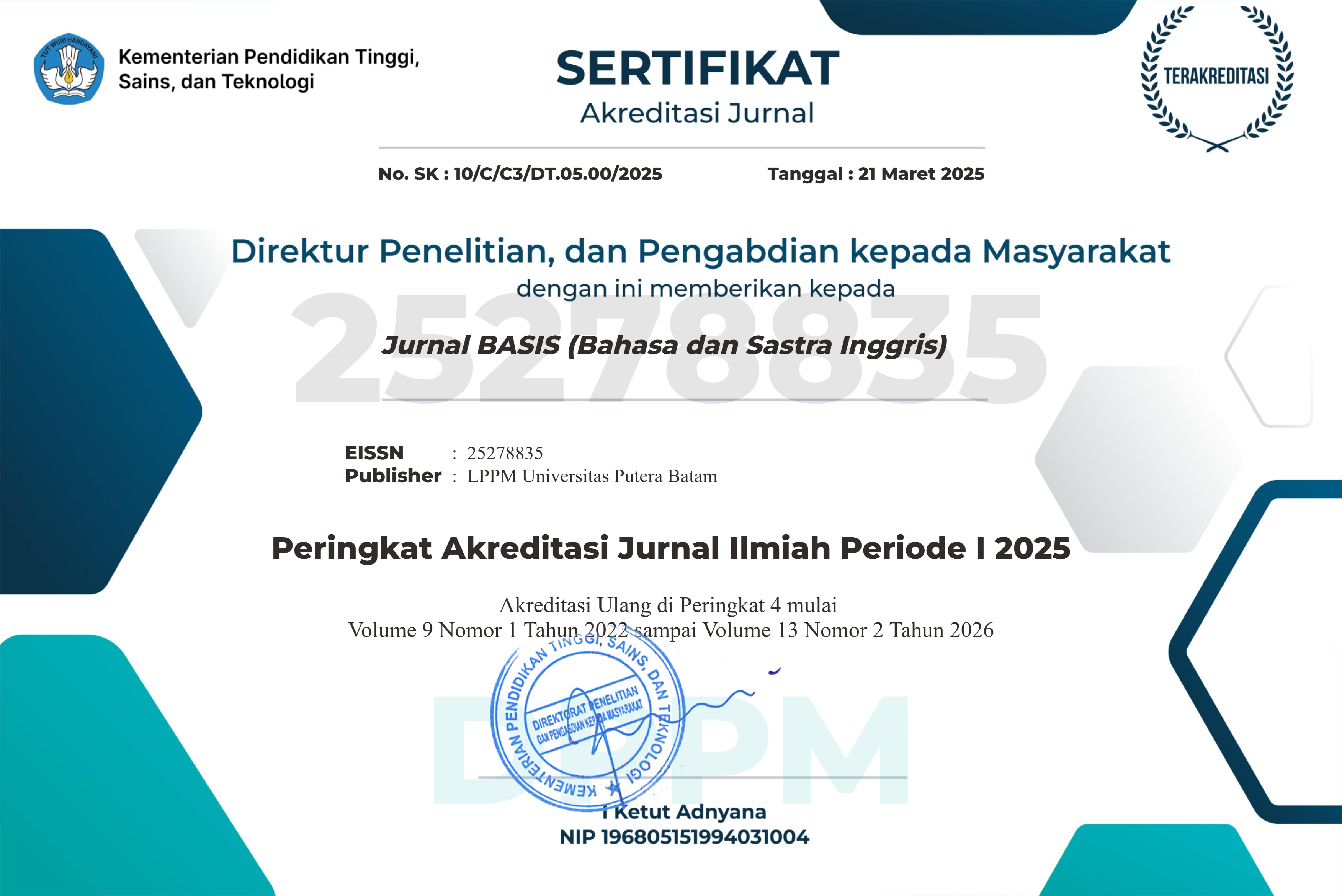AN ANALYSIS OF DIRECTIVE SPEECH ACT IN THUNDERBOLT MOVIE: PRAGMATIC APPROACH
DOI:
https://doi.org/10.33884/basisupb.v12i2.10154Keywords:
Directive Speech Acts, Pragmatics, Communication, Speech Act TheoryAbstract
The purpose of this study is to investigate the types of directive speech acts found in the movie Thunderbolt. This descriptive qualitative research focuses on the utterances produced by characters in the film, with direct speech acts serving as the main data source. Data were collected through an observational method using a non-participatory technique. The data analysis applied Sudaryanto’s (2015) method of identifying language elements, while the theoretical framework was based on Searle’s (1979) classification of directive speech acts. The findings show that the characters frequently employed directive speech acts to influence others’ actions. Out of 57 identified utterances, 20 were categorized as asking, 15 as requesting, 5 as ordering, 5 as commanding, 5 as giving advice, 5 as begging, and 2 as inviting. The most dominant type was asking. These speech acts were primarily used to give instructions, request help, and express urgency, especially in high-pressure scenes. This research offers insights into the use of directive speech acts in film dialogues and highlights their relevance to real-world communication and interaction.
References
Aini, Q., Hidayat, D. N., Husna, N., & Alek, A. (2023). Discourse Analysis of Directive Speech Acts Used by Teachers in Classroom Interactions. JET (Journal of English Teaching), 9(2), 137–150. https://doi.org/10.33541/jet.v9i2.4566
Austin, J. L. (1962). How to Do Things with Words. Clarendon Press.
Birner, B. J. (2013). Introduction to Pragmatics. Wiley-Blackwell. https://doi.org/https://doi.org/10.1017/cnj.2018.24
Blum-Kulka, S., House, J., & Kasper, G. (1989). Cross-cultural Pragmatics: Requests and Apologies. Ablex Publishing Corporation. https://books.google.co.id/books?id=jtlkAAAAMAAJ
Brown, P., & Levinson, S. C. (1987). Politeness: Some Universals in Language Usage. Cambridge University Press. https://books.google.co.id/books?id=OG7W8yA2XjcC
Creswell, J. ward. (2013). Research design: qualitative, quantitative and mixed methods approaches. In SAGE Publications. (3rd ed.). L. Habib.
Crystal, D. (2003). The Cambridge Encyclopedia of the English Language. Cambridge University Press. https://books.google.co.id/books?id=Kh_RZhvHk0YC
Cutting, J. (2002). Pragmatics and Discourse: A Resource Book for Students. Routledge. https://books.google.co.id/books?id=-KFELwzkFhYC
Green, G., Bach, K., & Harnish, R. (1983). Linguistic Communication and Speech Acts. Language, 59, 627. https://doi.org/10.2307/413908
Halil, N. I., Samsuddin, Yawan, H., & Yuliati. (2023). Exploring Directive Speech Acts in Elementary School Communication in Kolaka: Language Pedagogy Implications.













 JURNAL BASIS (BAHASA DAN SASTRA INGGRIS)
JURNAL BASIS (BAHASA DAN SASTRA INGGRIS)
